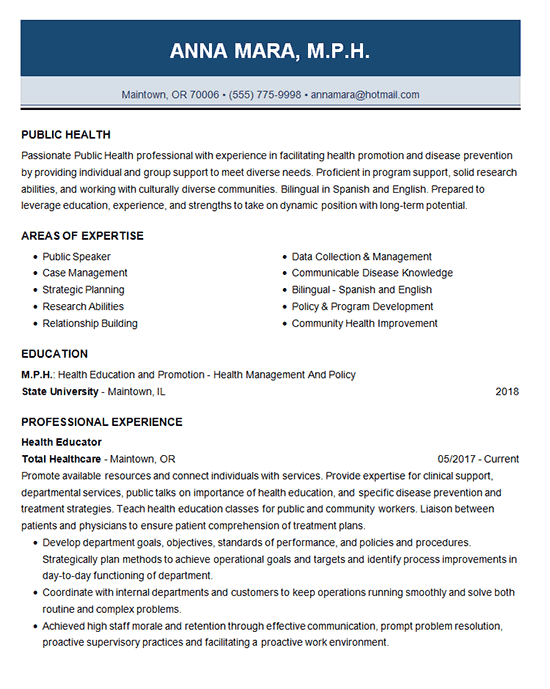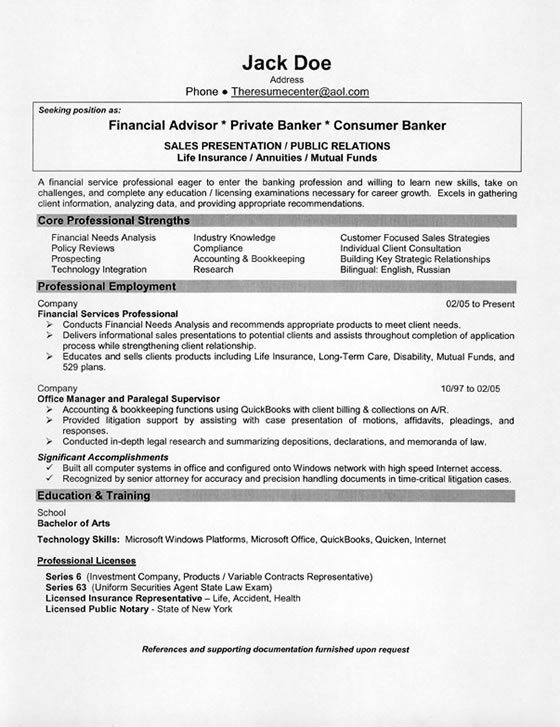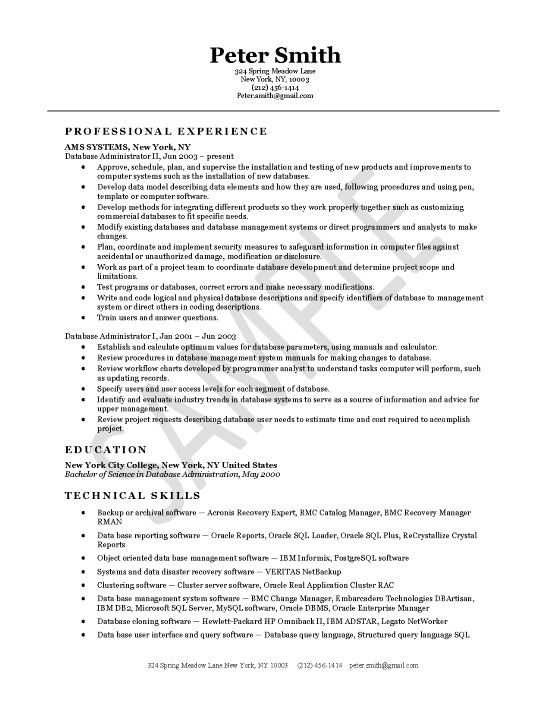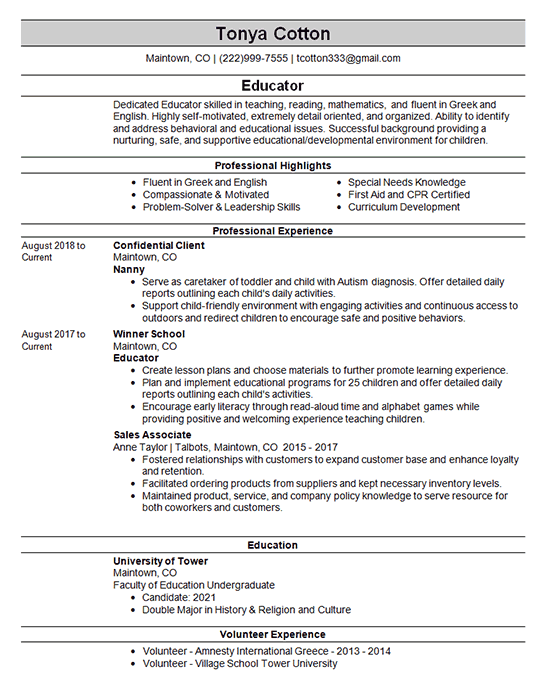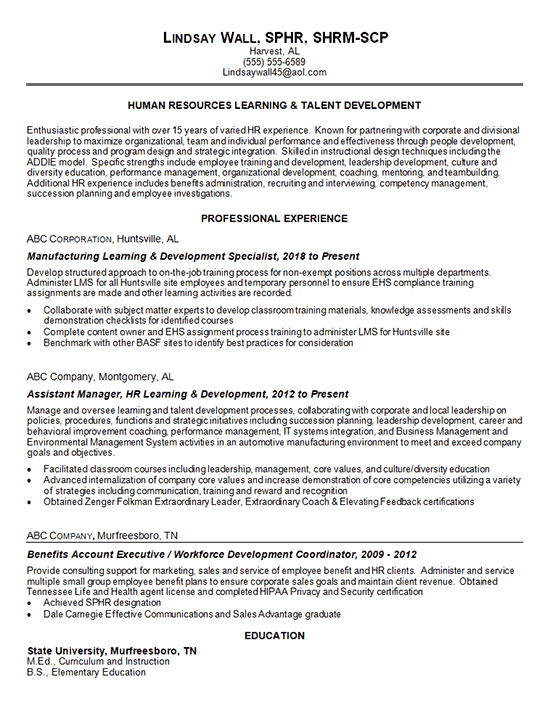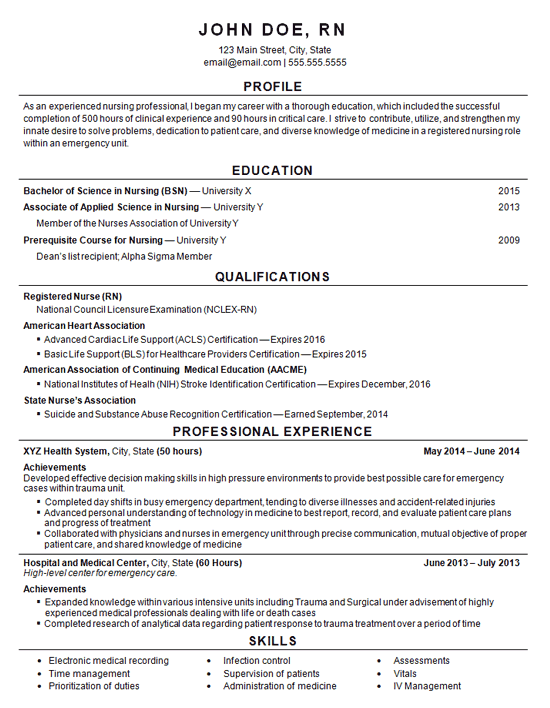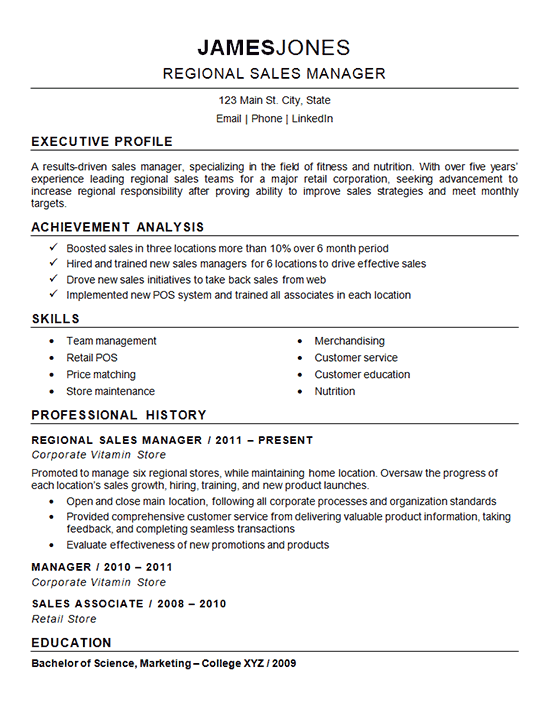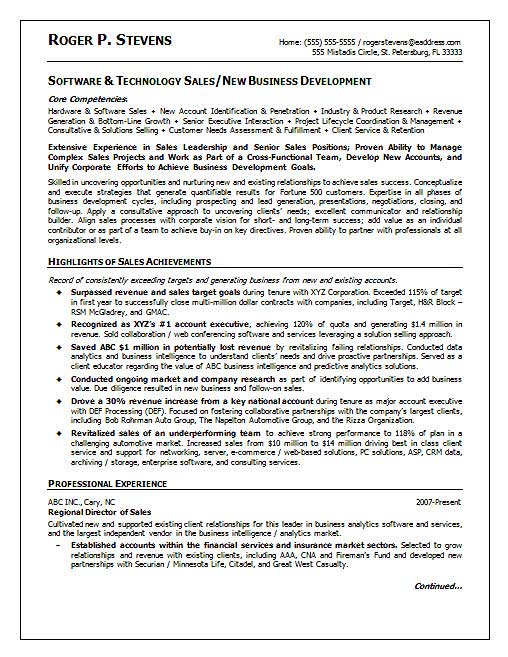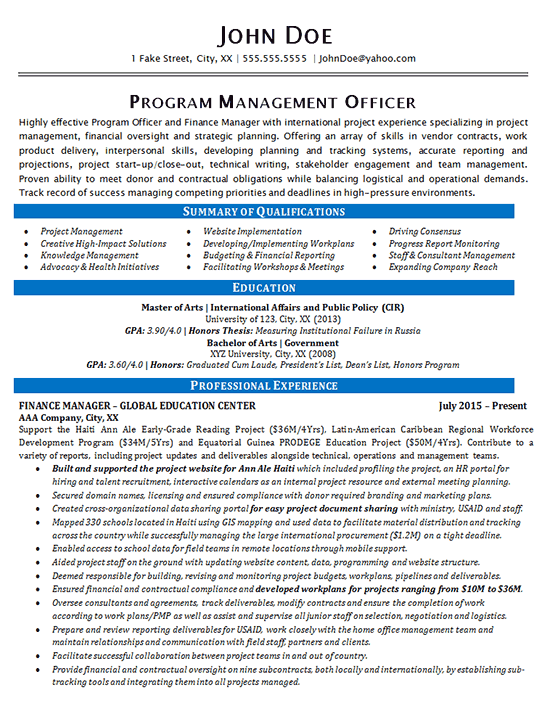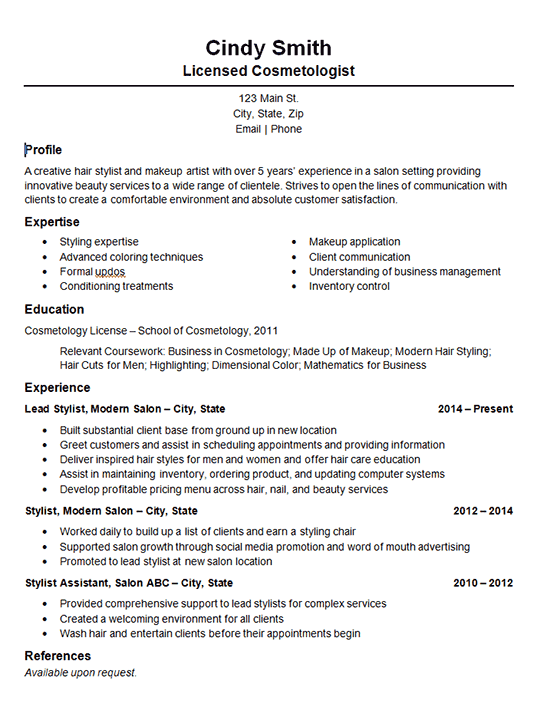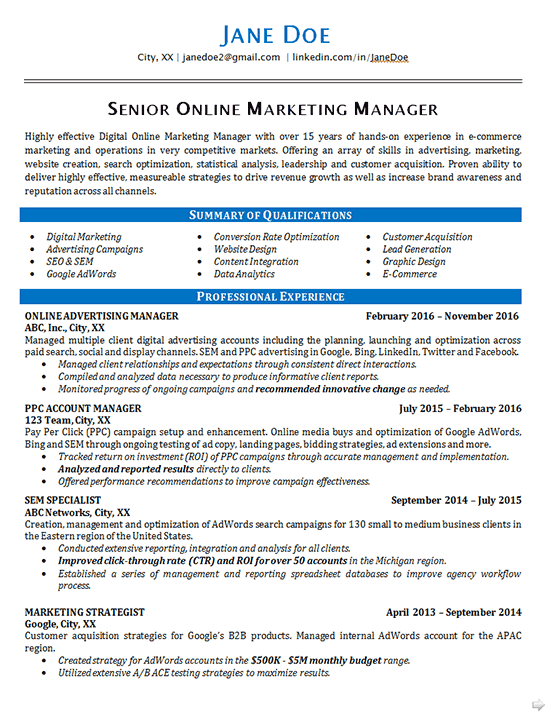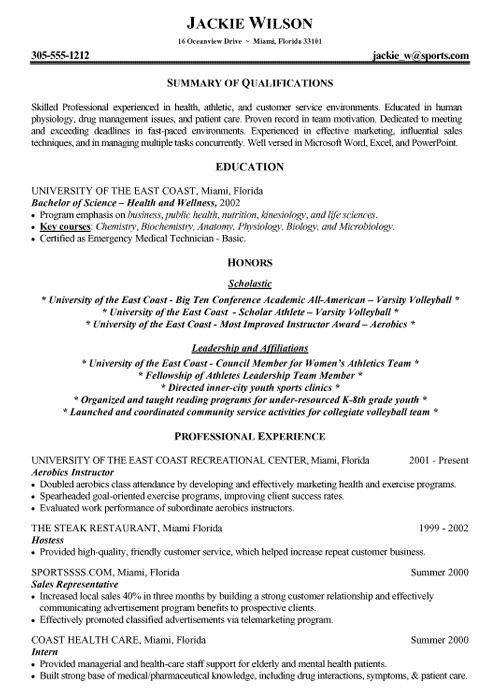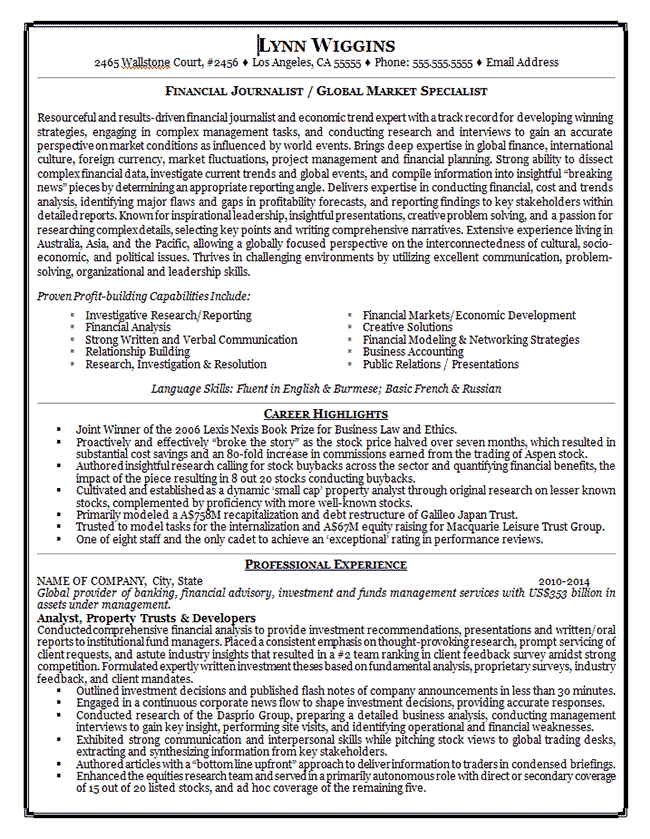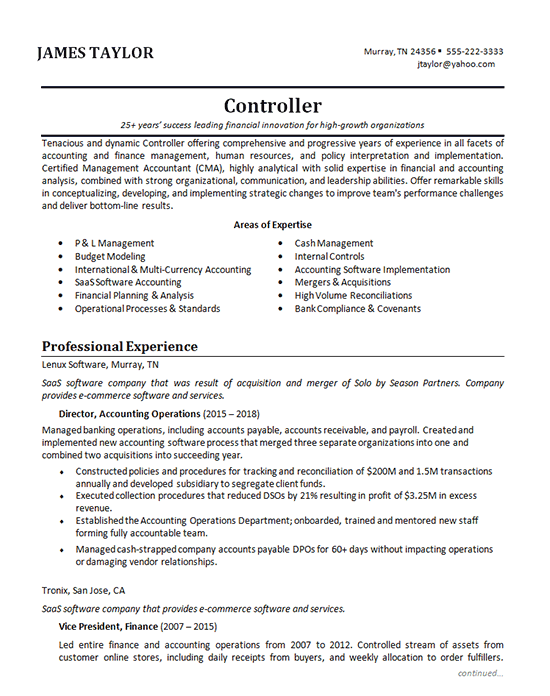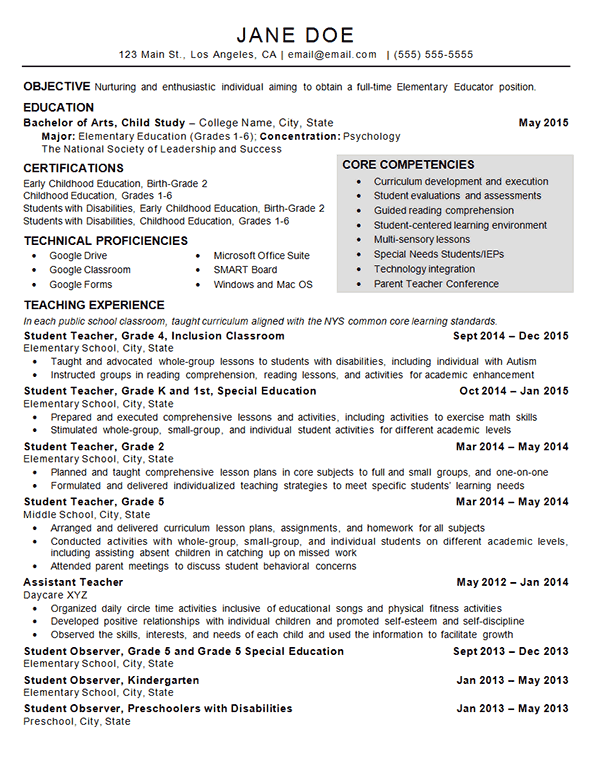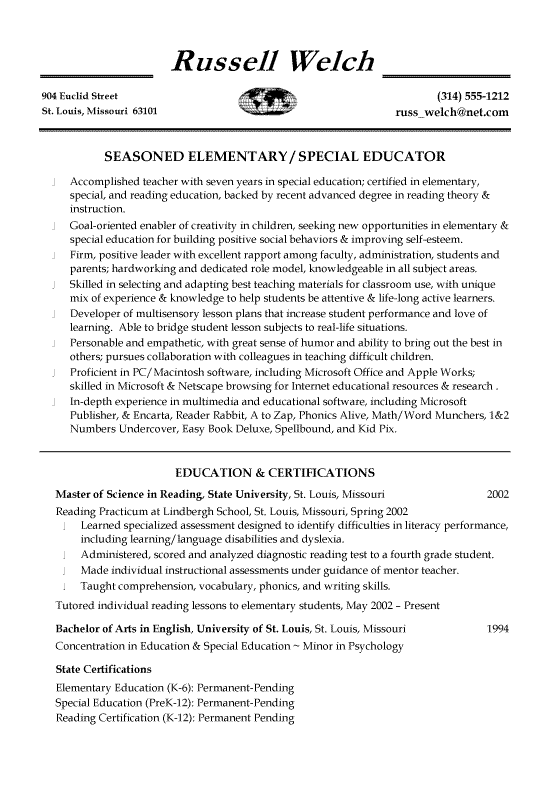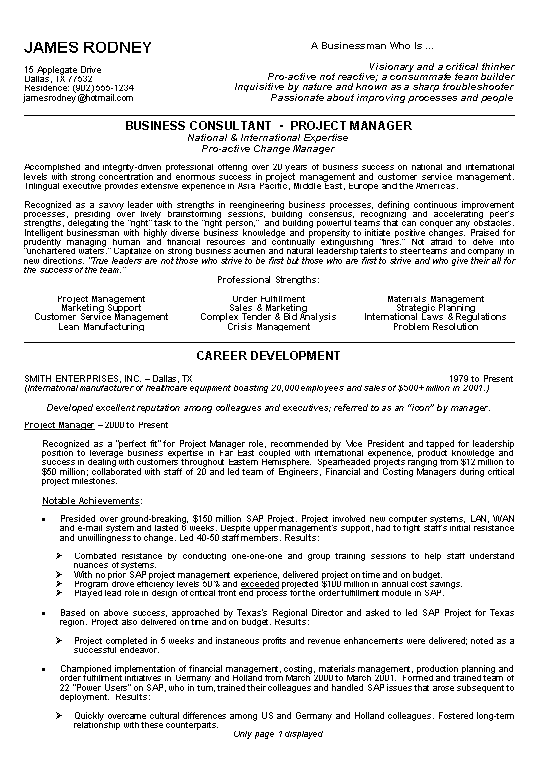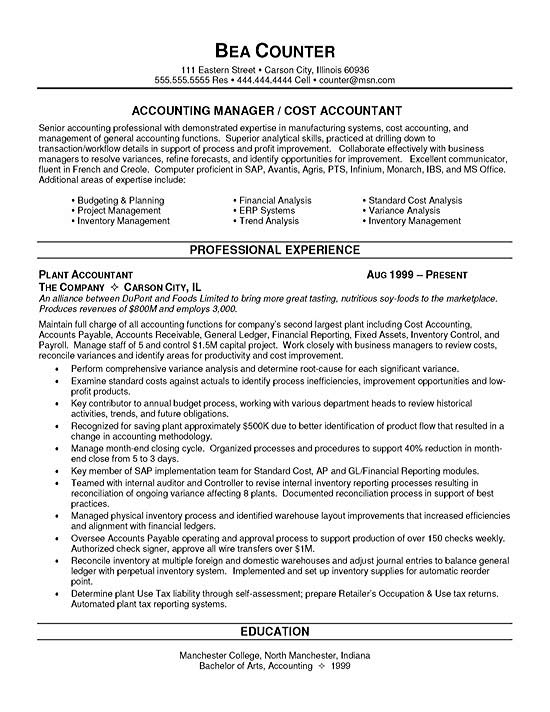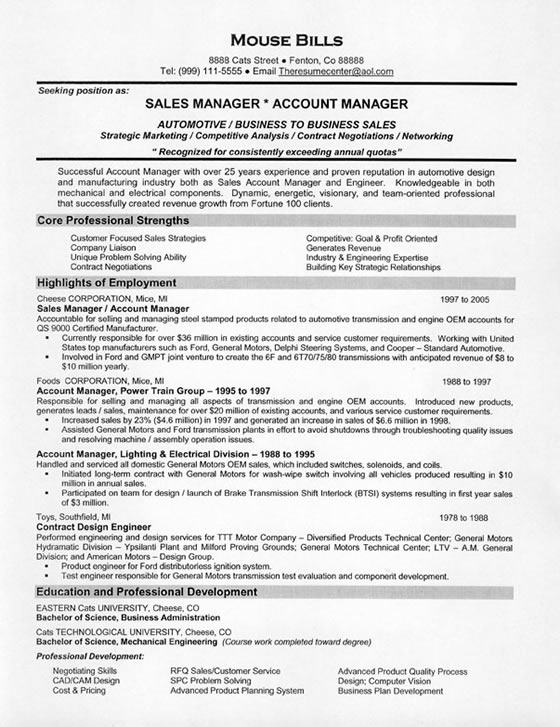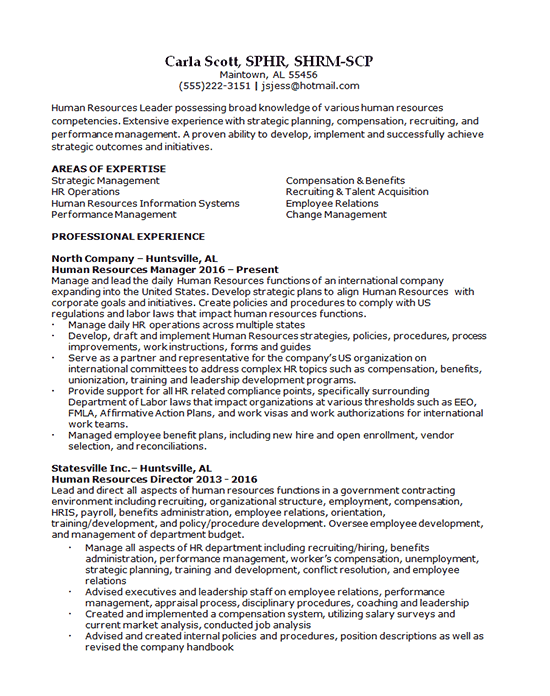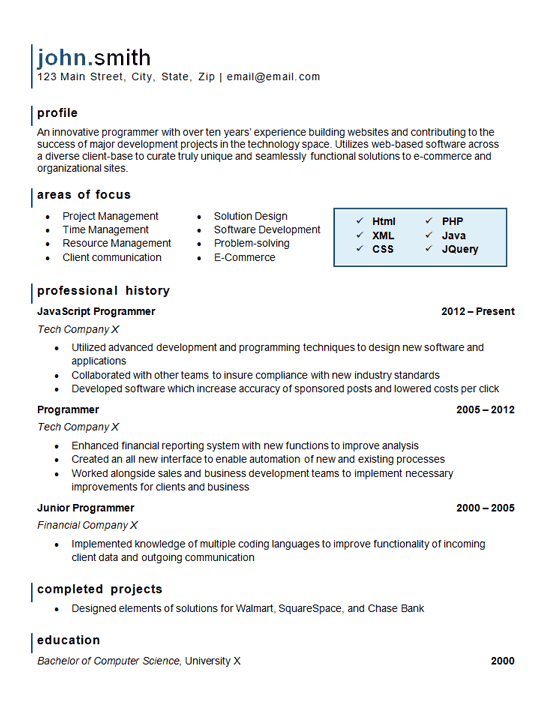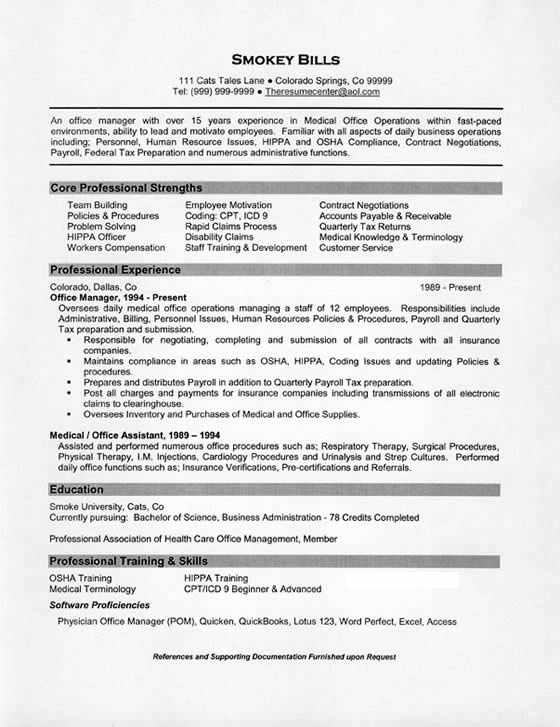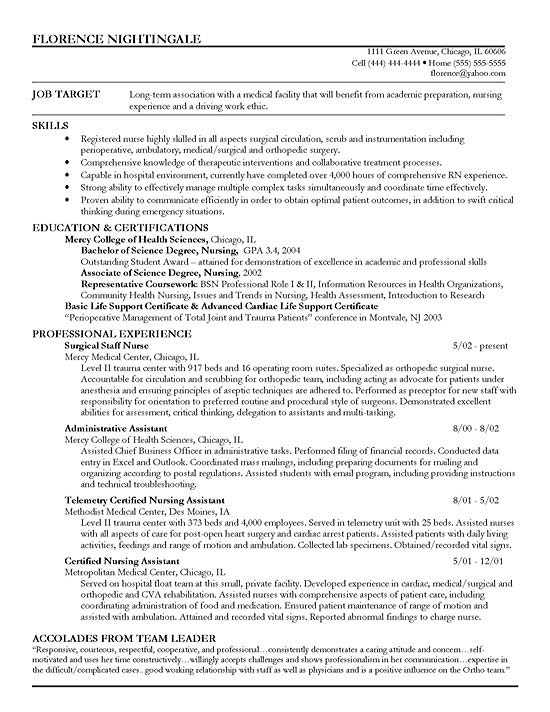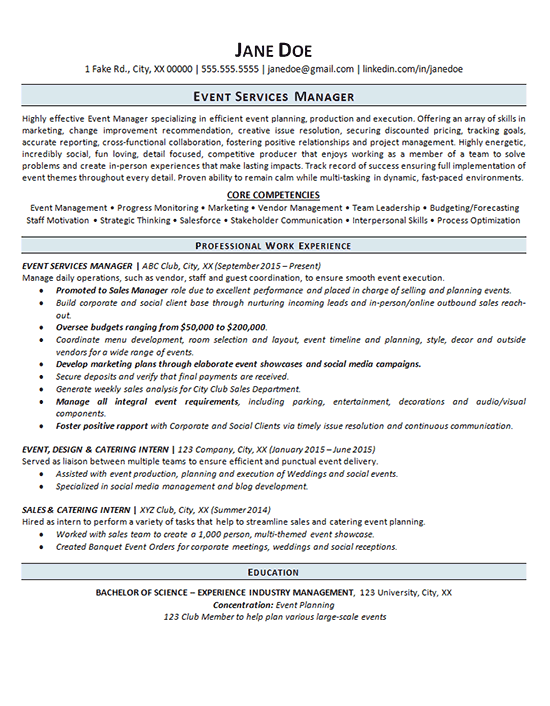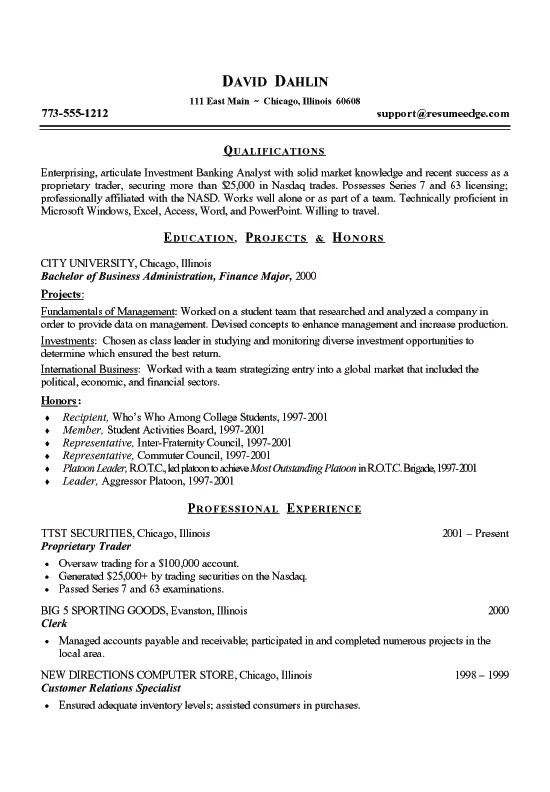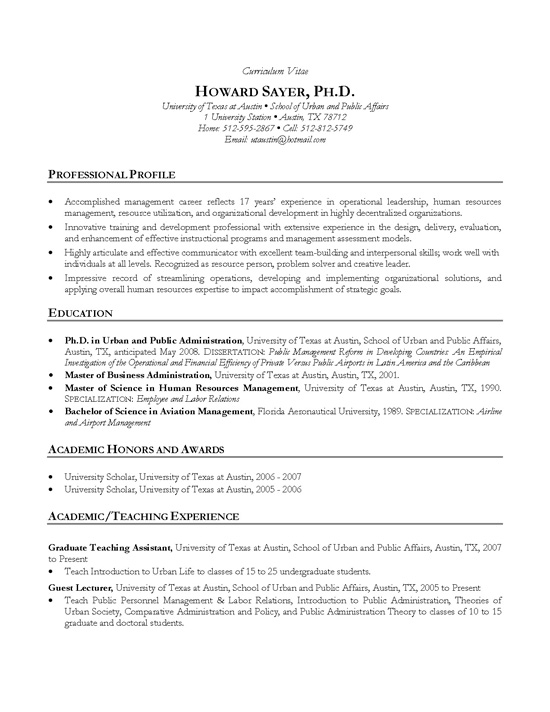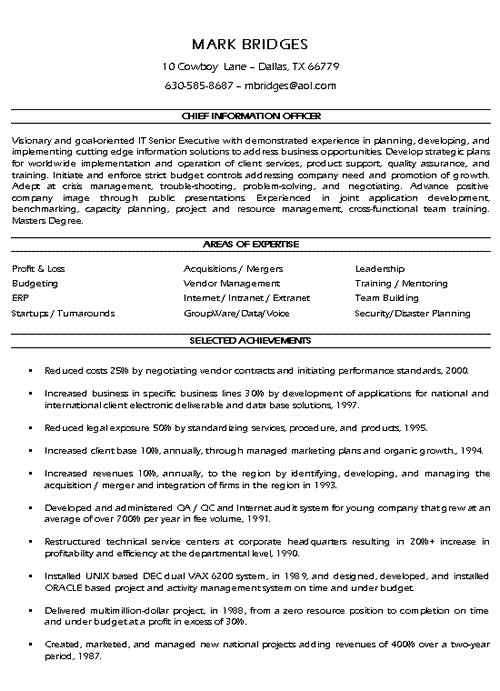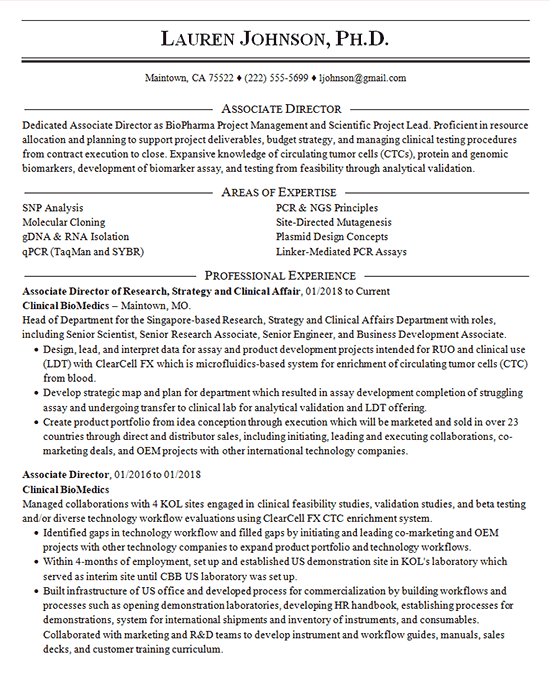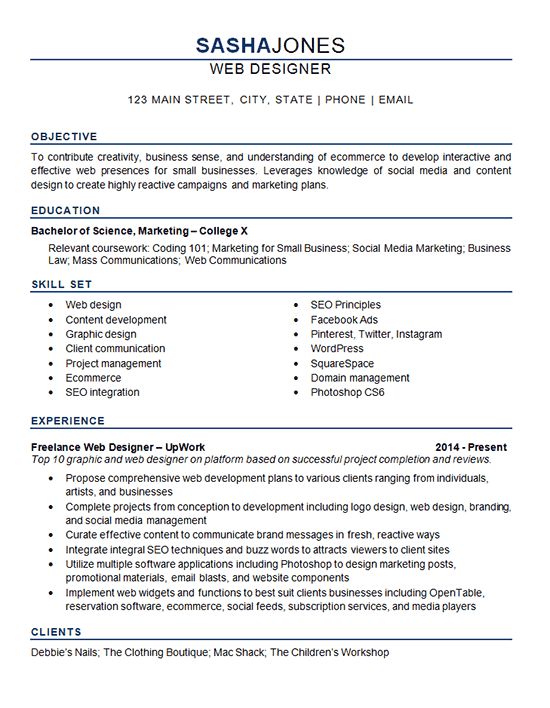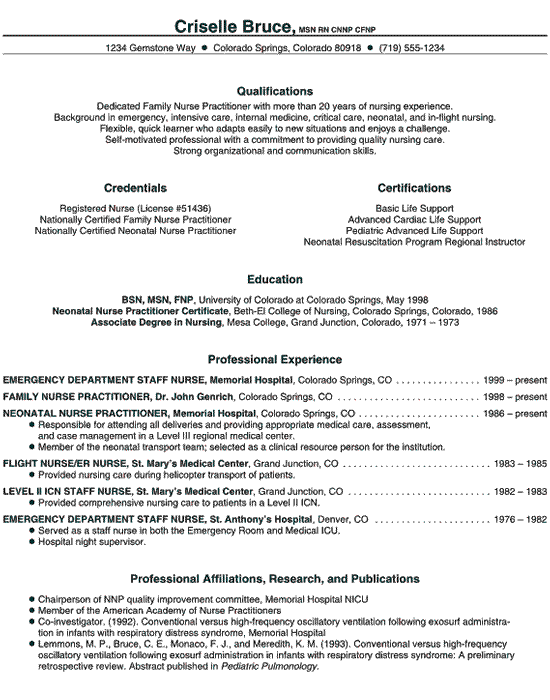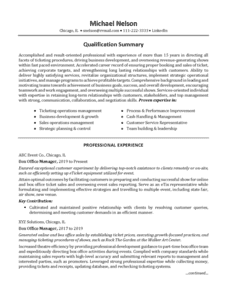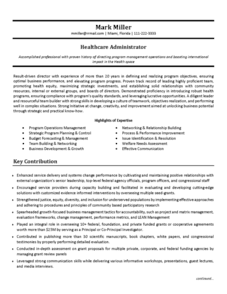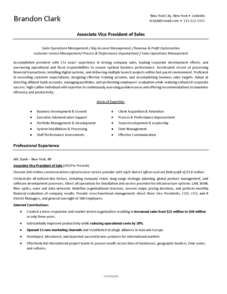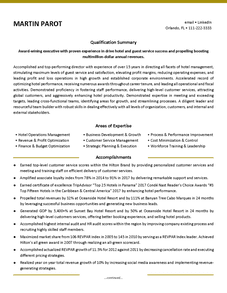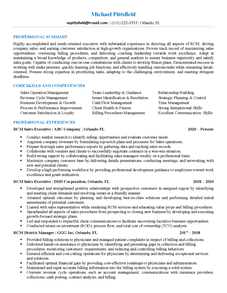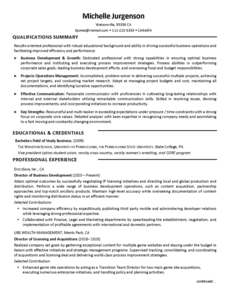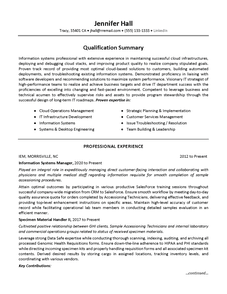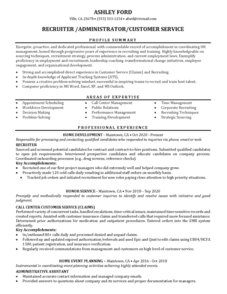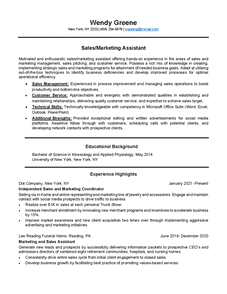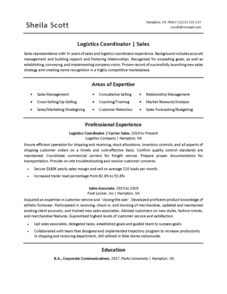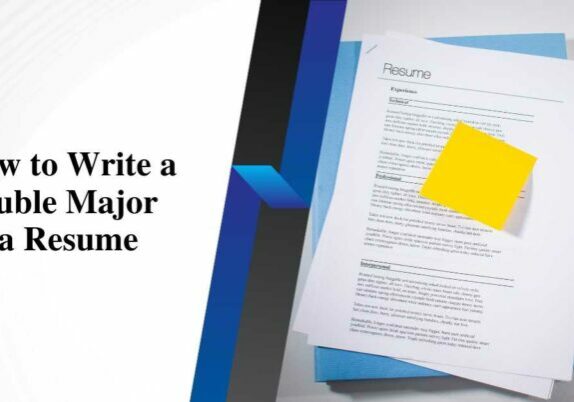The image below represents a resume for an Asset Management Executive with over two decades of experience in high level financial management.
The resume uses a job title heading to identify the job seeker’s career. A bullet list summary highlights major areas of importance. The first line explains how this professional primarily manages loans, commercial real estate and development projects for multi-family portfolios. Specific financial responsibilities are documented in the summary. The writer also highlights the scope of their work by quantifying the value of assets as $4 billion.
The remainder of the resume includes a reverse chronological listing of job positions with the most important, relevant positions in asset management at the top. In these positions, starting from 2005, the writer uses an italic paragraph to describe core duties. The bullets under the paragraph are used to accentuate specific achievements. The previous positions from 1993 to 2005 provide brief descriptions of similar in asset management. It is not necessary to go into more detail on the older positions. The resume is concluded with an Education system that includes a BBA in Finance /Real Estate and relevant training.
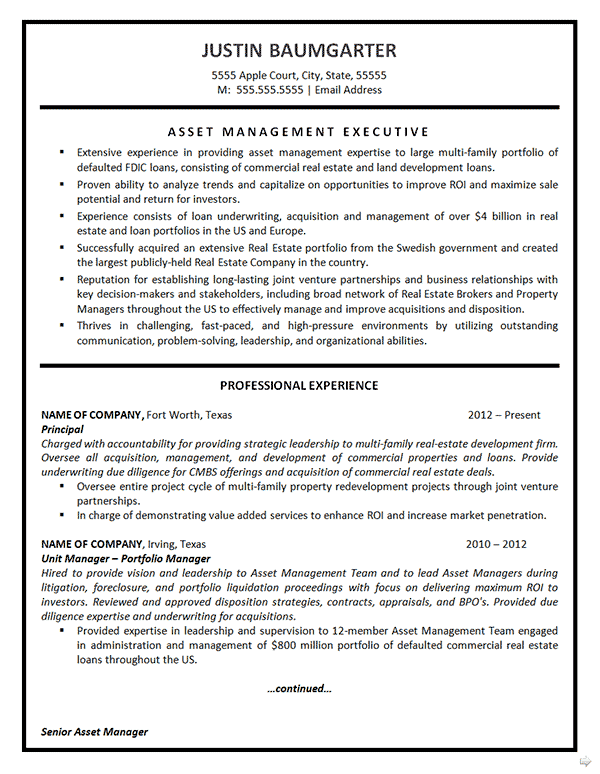
Asset Management Resume – Page 1

Asset Management Resume – Page 2
Asset Management Resume Example Statements
- Charged with accountability for providing strategic leadership to multi-family real-estate development firm.
- Oversaw all acquisition, management, and development of commercial properties and loans.
- Provided underwriting due diligence for CMBS offerings and acquisition of commercial real estate deals.
- Lead Asset Managers during litigation, foreclosure, and portfolio liquidation proceedings with focus on delivering maximum ROI to investors.
- Reviewed and approved disposition strategies, contracts, appraisals, and BPO’s.
- Directed asset management for commercial real estate and defaulted loan acquisitions in the US and abroad.
- Worked with investment firms and private real estate investors providing due diligence, and underwriting functions for the acquisition and management of real estate portfolios.
- Provided due diligence expertise and underwriting for acquisitions.
- Designed turnaround strategies for REO and provided due diligence expertise.
Asset Management Resume Writing Guide
Are you an aspiring asset manager looking to create a captivating resume that stands out from the competition? Look no further! This article will guide you through crafting an impressive asset management resume that showcases your skills and experiences in the best possible light.
An asset manager oversees a company’s investments and ensures their optimal performance. To create an impactful resume, including relevant information such as your expertise in designing and building Universes, experience with scripting tools and databases, and proficiency in verbal and written communication is important.
But where do you start? This article will walk you through the key components to include in your resume, including a compelling objective statement and a well-crafted cover letter to accompany it. With the help of resume-building tools and templates, you can easily create a professional resume that highlights your unique qualifications and attracts the attention of potential employers.
So, let’s dive in and discover how to create a resume to pave the way for your successful career in 2023.
What Is an Asset Manager?
An asset manager is a professional who utilizes expertise in financial products and services to exceed clients’ expectations, ensuring their assets’ effective management and growth.
As an asset manager, you’ll oversee the asset management process. This includes portfolio management, risk management, and property management. Your organizational skills will be crucial in managing and tracking various assets like stocks, bonds, real estate, and other investment vehicles.
Communication skills are also essential as you’ll interact with clients, understand their financial goals, and provide them with tailored investment strategies. You’ll need to communicate complex financial concepts clearly and concisely effectively.
Additionally, project management skills will be necessary to coordinate and execute investment strategies, monitor performance, and adjust as needed.
Analytical skills are vital in assessing market trends, evaluating investment opportunities, and conducting risk assessments. You’ll need to analyze financial data, perform market research, and make informed investment decisions based on your analysis.
As an asset manager, you play a crucial role in helping clients achieve their financial goals through effective asset management. Your expertise in financial products and services and strong organizational, communication, project management, and analytical skills will be critical to your success in this field.
What Should Be Included in an Asset Management Resume?
Highlight your relevant skills and experience to make your application stand out. Showcasing your portfolio and project management expertise is essential when creating a resume. Emphasize your ability to oversee and supervise assets, ensuring their optimal performance. Include your experience conducting due diligence and implementing effective organizational policies and procedures.
Start by summarizing your qualifications and including a brief overview of your professional background. Highlight any certifications or specialized training you’ve acquired in asset management.
Next, focus on your experience in managing diverse portfolios and achieving financial goals. Mention specific projects you’ve completed and the results achieved.
Highlight your ability to analyze market trends and make informed investment decisions. Include any experience in risk management and your ability to develop strategies to mitigate potential risks.
In addition, mention your proficiency in using asset management software and tools. This demonstrates your technical skills and ability to streamline processes.
Don’t forget to include any leadership roles you’ve held and your ability to work effectively in a team environment.
Highlighting these key points in your resume increases your chances of standing out as a strong candidate in the competitive job market.
What Skills Should I Put On My Resume for Asset Management?
Showcase your expertise and stand out as a strong candidate by including essential skills like portfolio analysis, risk management, and software proficiency on your resume. These skills and experience are crucial for successfully performing various management activities in the asset management field.
One crucial skill to highlight is your ability to manage multiple portfolios and effectively analyze their performance. This demonstrates your strong analytical skills and attention to detail.
Additionally, emphasize your experience managing risk and implementing strategies to minimize potential losses. Employers are looking for candidates who can effectively assess and mitigate risks in their asset management activities.
Strategic planning and financial management are also vital skills to include. Highlight your ability to develop and execute investment strategies that align with the client’s financial goals and objectives. Employers value candidates who can demonstrate their proficiency in financial analysis and decision-making.
Lastly, emphasize your ability to lead asset management teams and collaborate with various stakeholders. Effective communication and leadership skills are essential for successfully managing assets and achieving optimal results.
Incorporate these skills examples into your resume example to showcase your capabilities and increase your chances of landing your desired position.
How To Write an Effective Objective for an Asset Management Resume?
Crafting a compelling objective statement can significantly enhance your chances of securing a desirable position in asset management. It should convey your career goals and highlight the value you can bring to an asset management position.
To make your objective statement effective, start by stating your desire to secure a position in asset management. For example, write: “Seeking a challenging asset management position in a reputable investment management firm.”
Next, emphasize your strong communication skills including your ability to deliver results. Mention your in-depth knowledge of asset management principles and practices and your familiarity with company policies and procedures.
Consider incorporating specific achievements or qualifications for more impact. For instance, you can mention your experience managing portfolios, analyzing investment opportunities, or driving business growth.
Lastly, highlight your commitment to continuous learning and professional development. This can demonstrate your willingness to stay updated with industry trends and adapt to changing market conditions.
Remember, your objective statement should be concise, clear, and tailored to the specific asset management role you’re applying for. By crafting a compelling objective statement, you can make a solid first impression and increase your chances of landing an asset management position.
Write a Compelling Cover Letter To Go With Your Resume
Make a lasting impression on potential employers by including a compelling cover letter that complements your professional asset manager resume.
A well-written cover letter is your opportunity to showcase your skills, experience, and passion for asset management. It should grab the attention of the hiring manager and make them want to learn more about you.
When writing your cover letter, start by introducing yourself and stating the position you’re applying for. Then, highlight your relevant experience and skills that make you a strong candidate for the role. For example, if you have experience in audit or risk management, mention it in your cover letter. You can also mention any certifications or qualifications that are relevant to the asset management field.
In addition to highlighting your technical skills, it’s essential to emphasize your soft skills. Asset management requires strong communication, problem-solving, and analytical skills. Mention how you’ve used these skills in your previous roles and how they’ve contributed to your success as an asset manager.
Lastly, mention your enthusiasm for the company and why you want to work for them. Research the company and mention specific aspects that appeal to you, such as its senior management team or innovative management system.
Following these tips and incorporating important keywords, such as time management, negotiation skills, asset inventory, systems management, portfolio manager, project manager, commercial real estate, and project plan.
Conclusion
So, you’ve reached the end of this article on asset management resumes. Congratulations!
Now that you have all the information and tools you need to create a stellar resume, you’re ready to conquer the asset management world. Well, not so fast.
While a well-crafted resume is crucial, it’s important to remember that it’s just the first step. Your skills and experiences may be impressive on paper, but how you apply them in the real world truly matters.
So go out there, show them what you’re made of, and let your resume be the ironic reminder of the fantastic asset manager you’ve become. Good luck!

